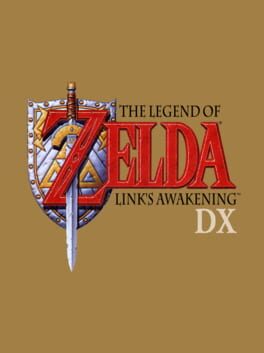This review contains spoilers
A Zelda game inspired by Twin Peaks that has nothing to do with the other Zeldas: if only spin-offs of well-known series could have the quality of this game.
Originally conceived as an adaptation of A Link to the Past, the game became something entirely different. The transition from SNES to GameBoy at the time often meant a degradation of the original product due to the technical limitations of the device. I had been traumatized by the GB version of Donkey Kong Country. Here, with Zelda, it's completely different; we're not faced with a 'lite' version. Even though the world of Link's Awakening is smaller in size than A Link to the Past, I felt more like this game added elements rather than removing them. We have more cutscenes, memorable characters, and more music (which is incredible, by the way).
Certainly, we return to a linear gameplay pattern, but the game's progression is exceptional. It feels like each 'square' of the map is used optimally. The size of the world, in my opinion, is ideal: neither too big nor too small. With each new item, we enjoy revisiting this world to discover new secrets, whereas A Link to the Past with its two parallel worlds seemed too large and confusing to me. Is Link's Awakening easier? If compared to its predecessors, the answer is clearly yes.
Spoilers: After discovering that the island is just a dream, I was struck by the fact that we view the game in a more melancholic light. Perhaps it's a metaphor for the player, but finishing the game means the disappearance of Koholint. The ambivalence in which we find ourselves is truly unique. After reading the mural, we enter the sixth dungeon and this music plays on loop, which I find particularly sad: https://www.youtube.com/watch?v=4X6UqQDmjBk
It's the first Zelda game that I played and finished (thanks to a magazine) that I absolutely loved. Almost 25 years later, the experience is almost the same. I played it with a smile.
Originally conceived as an adaptation of A Link to the Past, the game became something entirely different. The transition from SNES to GameBoy at the time often meant a degradation of the original product due to the technical limitations of the device. I had been traumatized by the GB version of Donkey Kong Country. Here, with Zelda, it's completely different; we're not faced with a 'lite' version. Even though the world of Link's Awakening is smaller in size than A Link to the Past, I felt more like this game added elements rather than removing them. We have more cutscenes, memorable characters, and more music (which is incredible, by the way).
Certainly, we return to a linear gameplay pattern, but the game's progression is exceptional. It feels like each 'square' of the map is used optimally. The size of the world, in my opinion, is ideal: neither too big nor too small. With each new item, we enjoy revisiting this world to discover new secrets, whereas A Link to the Past with its two parallel worlds seemed too large and confusing to me. Is Link's Awakening easier? If compared to its predecessors, the answer is clearly yes.
Spoilers: After discovering that the island is just a dream, I was struck by the fact that we view the game in a more melancholic light. Perhaps it's a metaphor for the player, but finishing the game means the disappearance of Koholint. The ambivalence in which we find ourselves is truly unique. After reading the mural, we enter the sixth dungeon and this music plays on loop, which I find particularly sad: https://www.youtube.com/watch?v=4X6UqQDmjBk
It's the first Zelda game that I played and finished (thanks to a magazine) that I absolutely loved. Almost 25 years later, the experience is almost the same. I played it with a smile.
